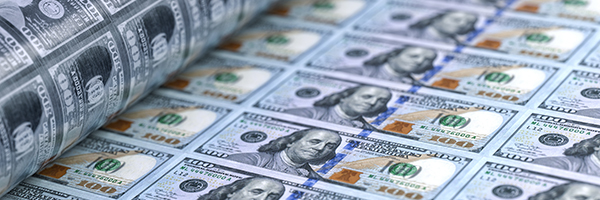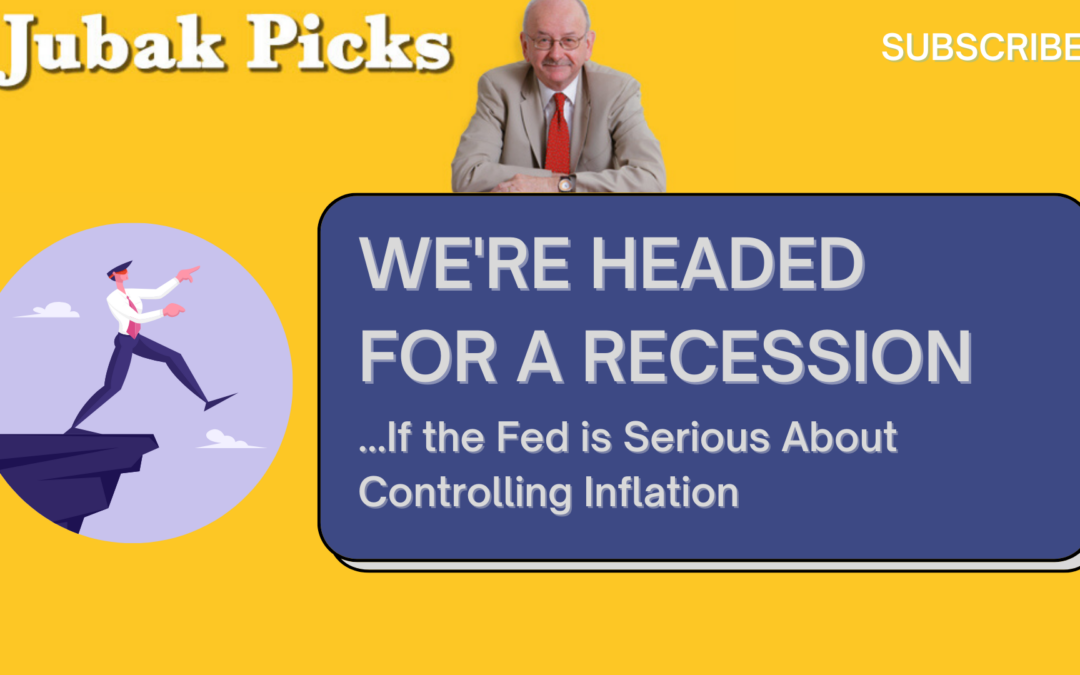
June 7, 2022 | Daily JAM, NTR, Top 50 Stocks |
Logic says that demand for fertilizer should be soaring as North American farmers look to increase production at a time when grain prices are near record highs thanks to the severe reduction in exports from the Ukraine and Russia. Logic, however, looks to be wrong. An article in the Financial Times on June 4 reports that demand for fertilizer is falling in response to record prices–for fertilizer. Farmers faced with higher costs for everything from fertilizer to diesel fuel are feeling themselves squeezed in spite of higher grain prices. So they’re buying less fertilizer and shifting away from crops such as corn that require heavy fertilizer use and toward crops such as soybeans, that require less fertilizer. U.S. farmers, the Financial Times reports, have told the U.S. Department of Agriculture that they intend to plant 4% fewer acres with corn n this spring and boost the number of acres dedicated to soybeans.

June 4, 2022 | Daily JAM |
Inflation isn’t solely a U.S. phenomenon. Which makes the Federal Reserve’s efforts to control inflation even harder. Inflation in the European Union hit a record 8.1% in May. The spread in the nineteen country group between the country with the lowest rate of inflation (Malta at 5.6%) and the highest (Estonia at 20.1%) also rose to the widest since . The gap between the highest and lowest inflation rates among the currency bloc’s 19 members has also jumped to its widest ever since the start of the euro in 1999. Meanwhile, inflation in Turkey hit a 23-year high of an annual 73.5% in May

June 2, 2022 | Daily JAM, Morning Briefing |
Another Federal Reserve official talked the interest rate increase talk today. Federal Reserve Vice Chair Lael Brainard told CNBC that expectations for half-percentage-point increases in interest rates this month and next were reasonable, and saw no case for pausing the central bank’s tightening campaign afterward. “From where I sit today, market pricing for 50 basis points, potentially in June and July, from the data we have in hand today, seems like a reasonable path.”

May 30, 2022 | Daily JAM, Morning Briefing |
Federal Reserve Governor Christopher Waller said today, May 30, that he wants to keep raising interest rates in half-percentage point steps until inflation is easing back toward the central bank’s goal of 2%. “I support tightening policy by another 50 basis points for several meetings,” he said. “In particular, I am not taking 50 basis-point hikes off the table until I see inflation coming down closer to our 2% target.” Waller is the first Fed official to speak on interest rate policy after last week’s rally and ahead of the quiet period that begins Saturday and runs through the Fed meeting on June 15. On Sunday I posted that the tenor of Fed comments this week would go a long way to demonstrating whether the Powell Put–the Fed’s de facto policy of propping up stocks on a decline–was still in effect or if it had been replaced by a policy of subtly encouraging orderly (of course) market retreats as an aid to fighting inflation.

May 27, 2022 | Daily JAM, Videos |
My one-hundredth-and-thirty-seventh YouTube video “We’re headed to a recession…if the Fed is serious about fighting inflation” went up today.

May 27, 2022 | Daily JAM |
In today’s YouTube video I argue that the Federal Reserve will have engineer a recession if it is serious about bringing inflation under control. This post gets more into the specific details of why I think that’s true than the video does. (I suggest reading this and watching the video “We’re headed to a recession.”)
The Federal Reserve isn’t staffed by mean old orcs (as far as I know) determined to bring on a recession because they think it’s fun to inflict economic pain on 350 million people. No, a recession is coming because 1) the Fed has only very limited, very blunt tools for fighting inflation, and 2) those tools aren’t very effective against the kind of inflation that is on the prowl in the current economy.

May 25, 2022 | Daily JAM, Morning Briefing |
Minutes from the Federal Reserve’s May 4 meeting shows central bank officials in agreement on the ned for 50-basis-point interest rate increases at the June and July meetings. And then, the minutes say, the Fed would respond to developments in the economy either with more interest rate increases or a pause to let the economy recover. That’s essentially in line with market sentiment–although Wall Street may be more convinced of the need for a September interest rate increase. That agreement was reassuring to the stock market today.

May 18, 2022 | COST, Daily JAM, Jubak Picks, Morning Briefing, WMT |
As of 3:30 p.m. Wednesday May 18 shares of Target (TGT) were down 25% for the day after the company reported a big earnings miss for the first quarter. Let’s be clear. The sales picture at Target was very positive for the quarter. Same store sales were up 3.3% in the quarter. That was about three times higher than Wall Street analysts had expected. Revenue was up 4%. Here again Target’s $25.2 billion in revenue beat expectations for $24.3 billion in revenue. But earnings were terrible at $2.19 a share versus forecasts for $3.05 a share.

May 11, 2022 | Daily JAM, Morning Briefing, You Might Have Missed |
Inflation, as measured by the Consumer Price Index, fell in April to a year over year rate of 8.3%. That was down from an 8.5% rate in March, raising hopes that the economy had seen the inflation peak. But economists had been projecting a drop to 8.0% in April.. Which left financial markets considering the possibility that while inflation was falling, the pace of the decline would be disappointingly slow. Also worrisome was an unexpected gain in core inflation, which strips out volatile food and energy prices. Core CPI inflation was up 0.6% in April from March after a 0.3% month to month increase in March.

May 9, 2022 | Daily JAM, Dividend Income, Jubak Picks, PEP, Top 50 Stocks |
Last week PepsiCo (PEP) declared a quarterly dividend of $1.15 a share, up about 7% from $1.075 a share. That brings the dividend yield up to 2.7%, almost exactly Coca-Cola’s (KO) 2.72% yield. On the basis of that yield and the pricing power that the company demonstrated in first quarter earnings I’m adding the stock to my Dividend Portfolio. I think it’s a good pick for a period of high inflation and uncertain economic growth.

April 27, 2022 | Daily JAM, Morning Briefing |
Data, data everywhere in the next two days. From inflation to GDP. To begin with the Bureau of Economic Analysis is scheduled to report first quarter U.S. GDP growth on April 28. Economists expect to see that the economy has grown at an annualized rate of just 1.1% in the quarter. That would be a huge drop from the 6.9% rate in the fourth quarter of 2021. But they warn that the headline number will be extremely misleading.

April 26, 2022 | Daily JAM, Dividend Income, Jubak Picks, KO, PEP, Top 50 Stocks |
Neither company crushed Wall Street earnings expectations, but both reported good enough news in a very tough environment. I own PepsiCo in my long-term 50 Stocks Portfolio, where it was up 220.4% from my initial December 30, 2008 pick as of the close on April 26. I will add the stock to my 12-18 month Jubak Picks Portfolio tomorrow, April 27, with a target price of $190 a share. The stock pays a 2.47% dividend I own shares of Coca-Cola in my Jubak Picks Portfolio, where it was up 29.8% from my February 19, 2021 pick, and in my Dividend Portfolio, where it was up 41.75% from my May 1, 2020 pick. Tomorrow, April 27, I will add shares of Coca-Cola to my long-term 50 Stocks Portfolio. In addition I will raise the target price on Coca-Cola in my Jubak Picks Portfolio to $78 from the current $56 a share.













